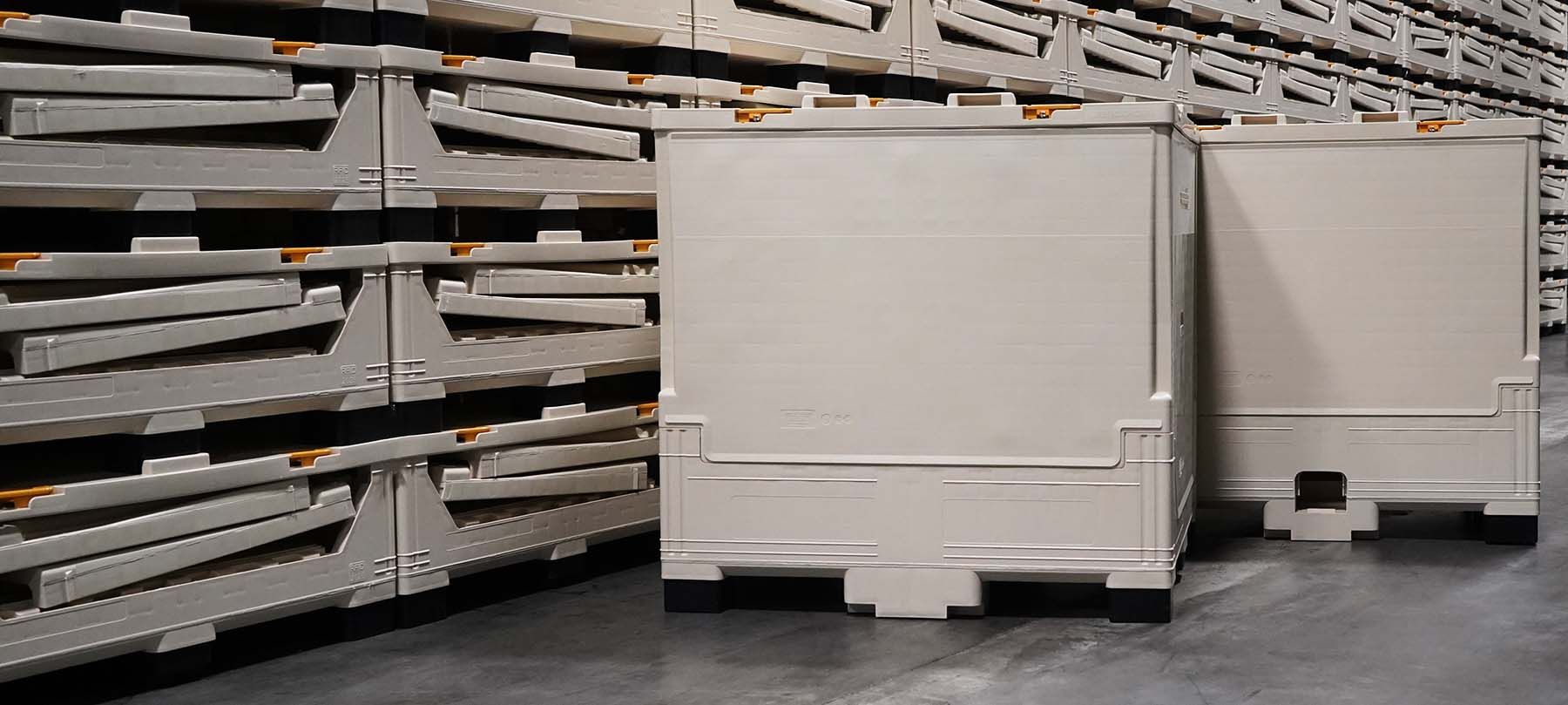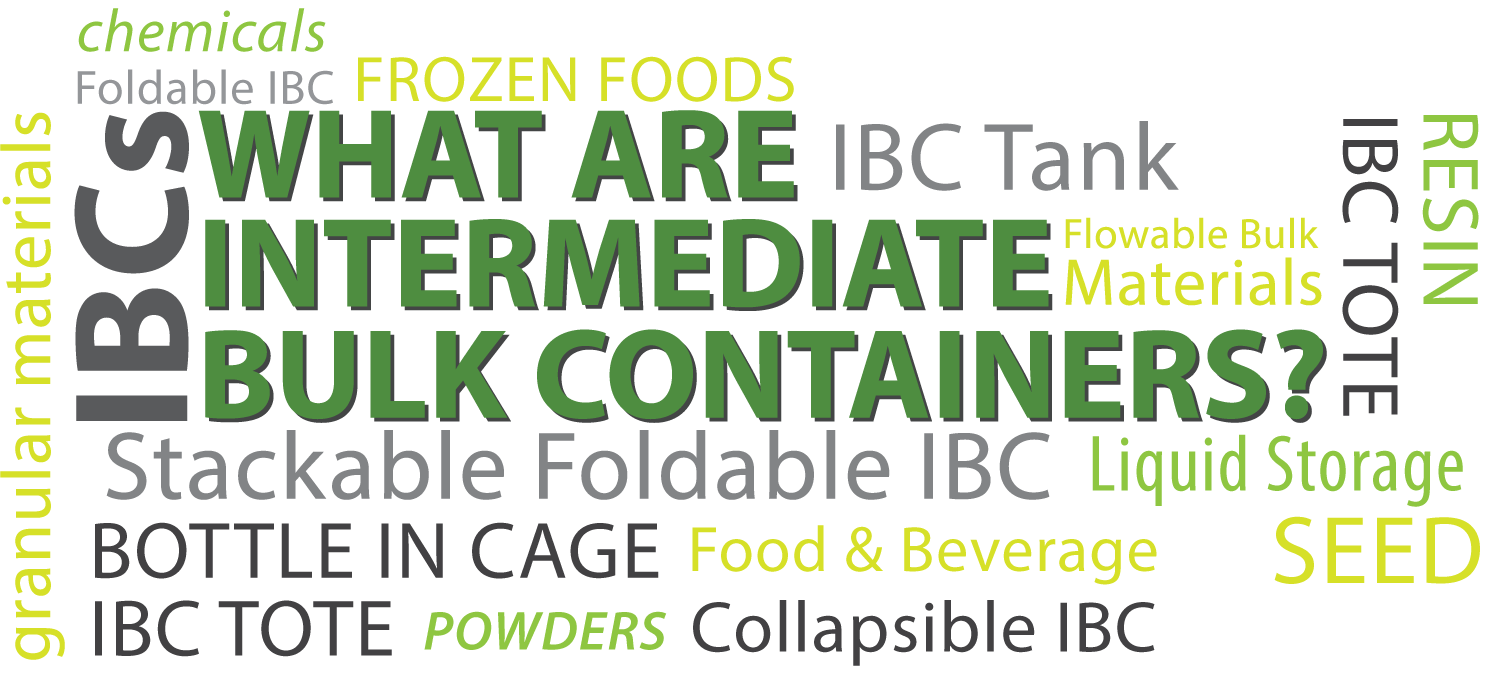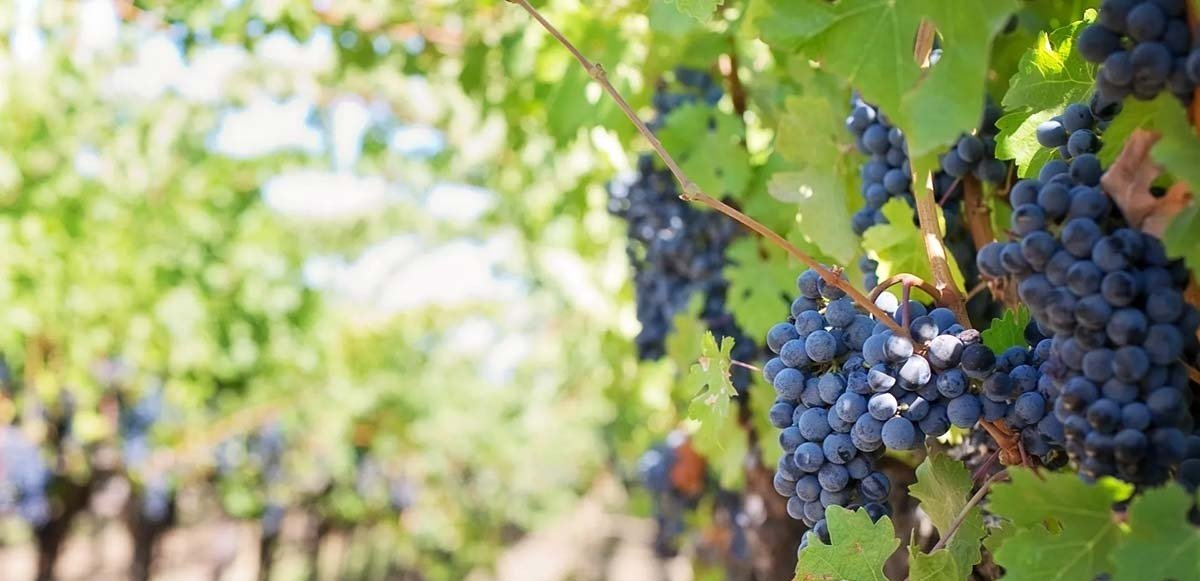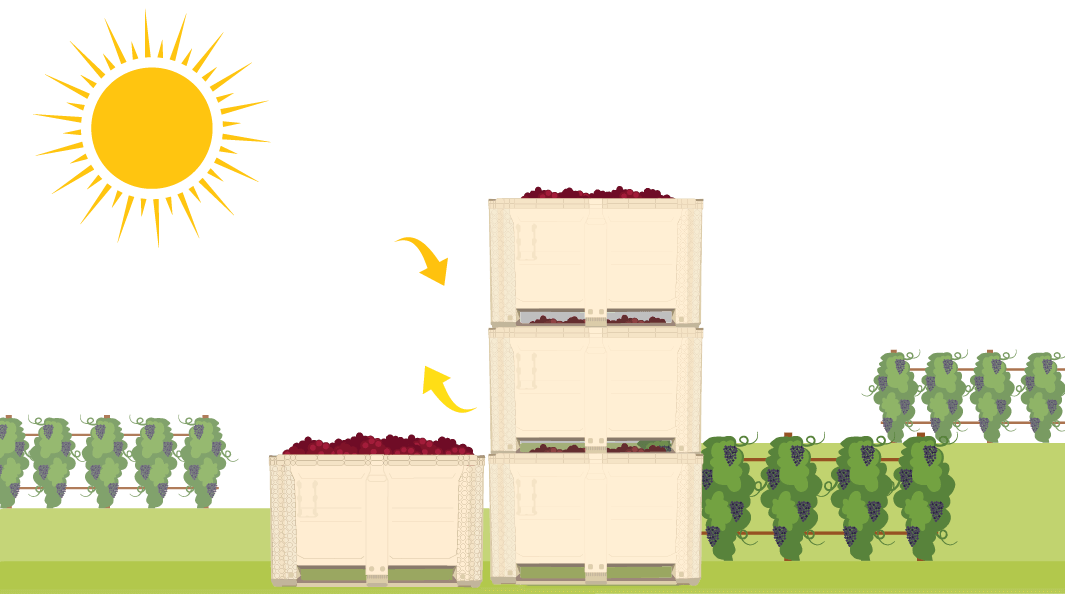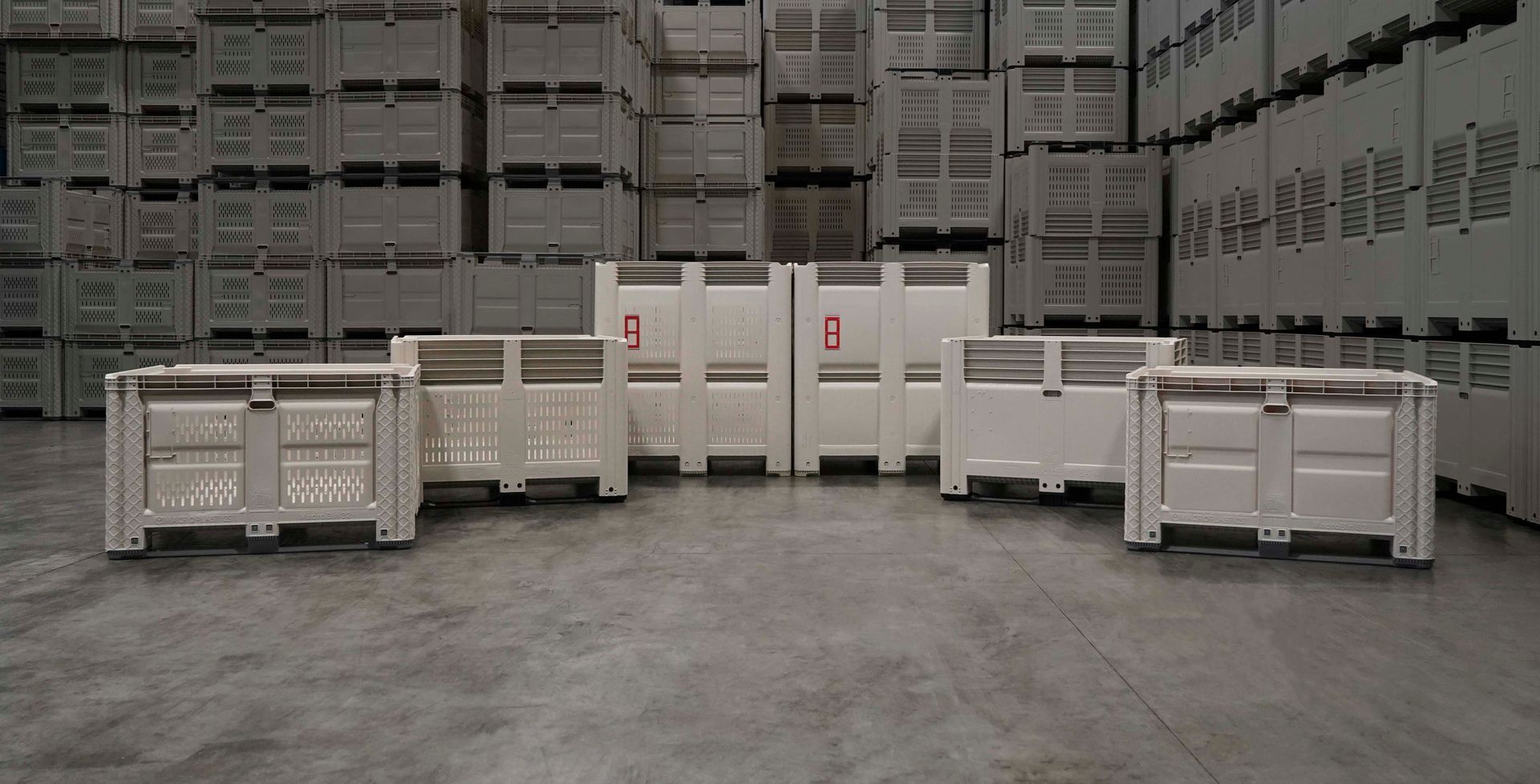Plastic Bulk Bins for Wine Industry Applications
Why solid bulk bins?
It’s one of our top priorities at Bulk Container Express to ensure you have the right containers for your grape harvest! Whether you require solid wall bulk bins for harvesting or fermenting, we have the best quality containers and are here to help. Our durable solid bulk harvest bins are the top choice for many vineyards and wineries in the U.S. and Canada. They are engineered with 100% polypropylene materials, making these containers lightweight, durable, and FDA-approved.
We offer three different sizes of solid wall bulk bins (DGM454830-S,
DGM454834-S,
DGM484853-S) with our wine containers which is also an attractive feature that will not be as prevalent with stainless steel and wood options.
The solid wall bulk bins are made of high-quality virgin polypropylene, a type of plastic known for its high flexible strength and durability. And this heavy-duty plastic is purpose-built, with just enough "give" to help prevent bumps from machinery and tools from cracking the bins. Every bin is made of FDA-compliant materials. All containers can be easily cleaned before reuse and don't harbor splinters, pests, pathogens, mold, or other undesirable elements like wood can. Our wine containers have a smooth, solid interior designed to eliminate any juice or grape leaks. The rounded corners and smooth interior help prevent your product from any damage you would typically incur with a wooden crate. Since polypropylene plastic is non-porous, there is no need to worry about the bins absorbing liquids. This design reduces any risks of bacteria or contamination from insects, keeping the contents safe. The smooth interior also makes cleaning and sanitizing extremely easy.
Because they have an internal flat bottom, smooth curved hygienic surfaces, and a great geometry, they are often used as an inexpensive primary fermenter. They work well for this application because the containers do not absorb heat. The weather during the grape season also influences the quality of wine production. The grape harvest season runs from August to October every year in Napa Valley. Whites like Chardonnay and Sauvignon Blanc are harvested next, often in August and September. These grapes don’t need as much time on the vine to ripen. Pinot Noir, Merlot, and Malbec come in next. Finally, Cabernet Sauvignon and other robust reds like Petite Sirah are harvested. These grapes are collected during the day or at night by manual shearing or machinery.
Designed with temperature control in mind
Designed with temperature control in mind, you will not need to worry about your grapes overheating in the sun during the harvesting process. The light color of the wine bins reflects sunlight and, in turn, will absorb less heat, keeping your product from getting too hot. This heat dispersion is also beneficial when it comes to skin contact during the fermenting process. The 48" x 48" x 53" 48-S ProBin, measuring 48” L x 48” W x 53” H, will hold over 400 gallons during the fermentation process. Our wine harvest containers also have an optional lid that you can purchase for added protection from the sun, insects and pests, and other elements.
Designed to be stacked for transport and storage
While harvesting, it is beneficial to be able to stack your full containers on top of one another to save space inside your facility or on the vehicle that will be transporting your grape harvest to the crushing facility. The bases of our solid wall bulk bins have feet designed for stacking so that each container is safely and securely stacked on top of the container below without damaging any product. These solid wall containers can stack with or without a lid. The bins are also forklift compatible from all four sides, allowing for easier handling. Many solid wall bulk bins will have runners, also known as fork straps, connecting the feet on either the long or short sides of the container. Runners on the containers allow the use of a conveyor and/or forklift.
The solid wall bulk bins will make your winemaking process easier, from field to bottling. Plus, they are environmentally friendly. Since they are 100% made of polypropylene material, you can recycle these containers at the end of their lifecycle.
Do you have questions?
If you have questions about selecting the right container for your winery, visit our Solid Wall Bulk Bin page or contact our sales staff through our live chat, contact page, or phone.
